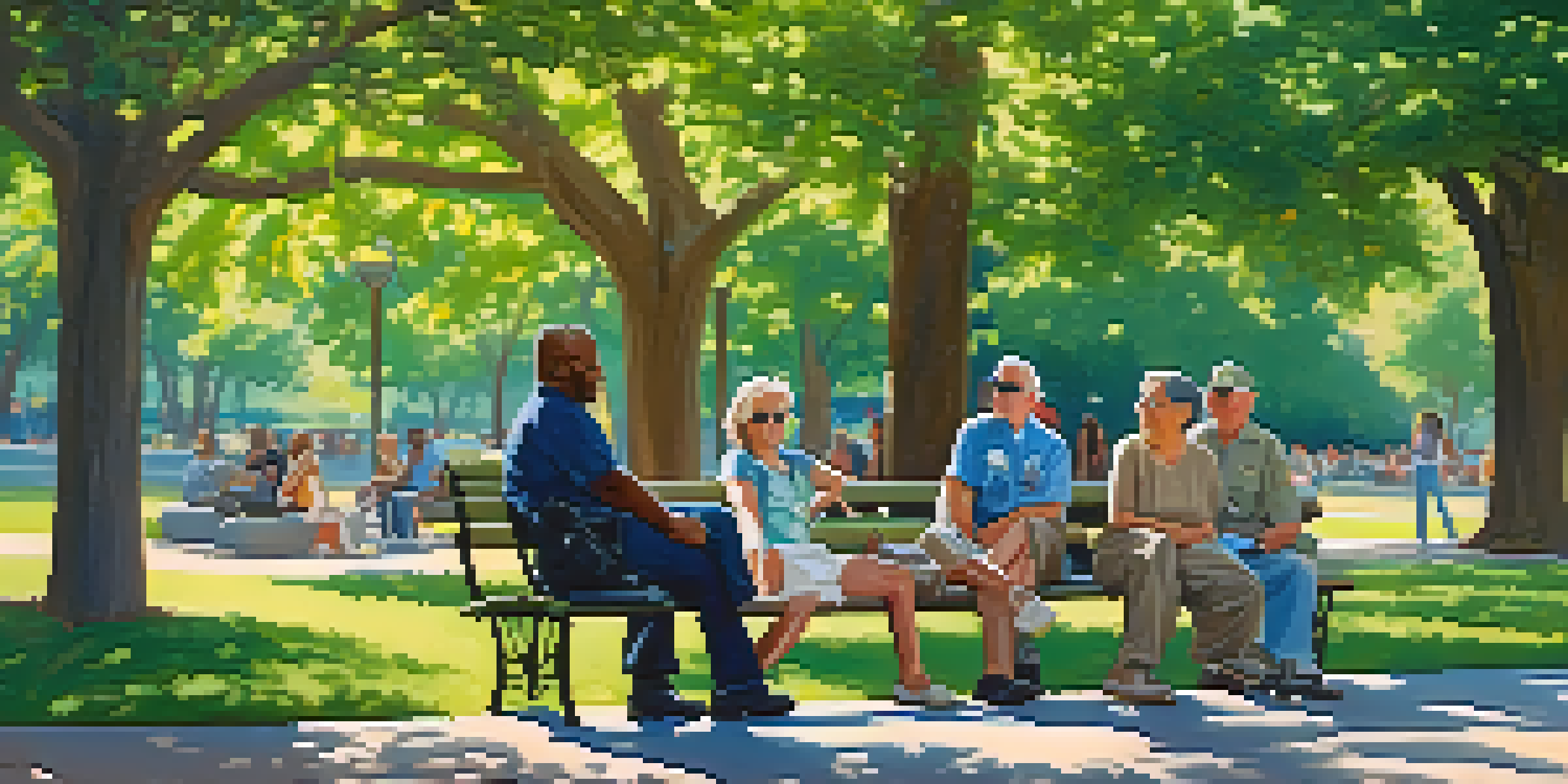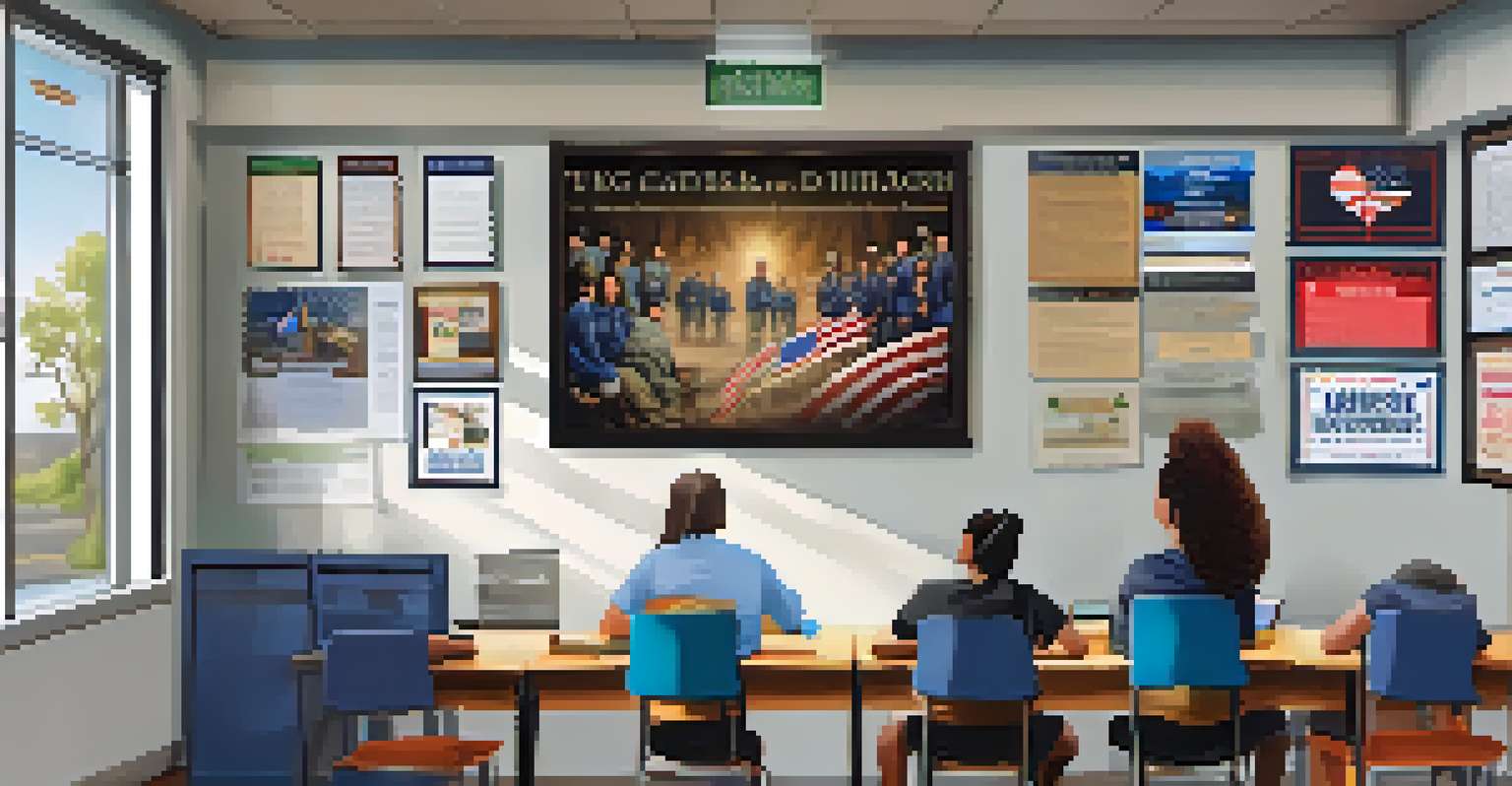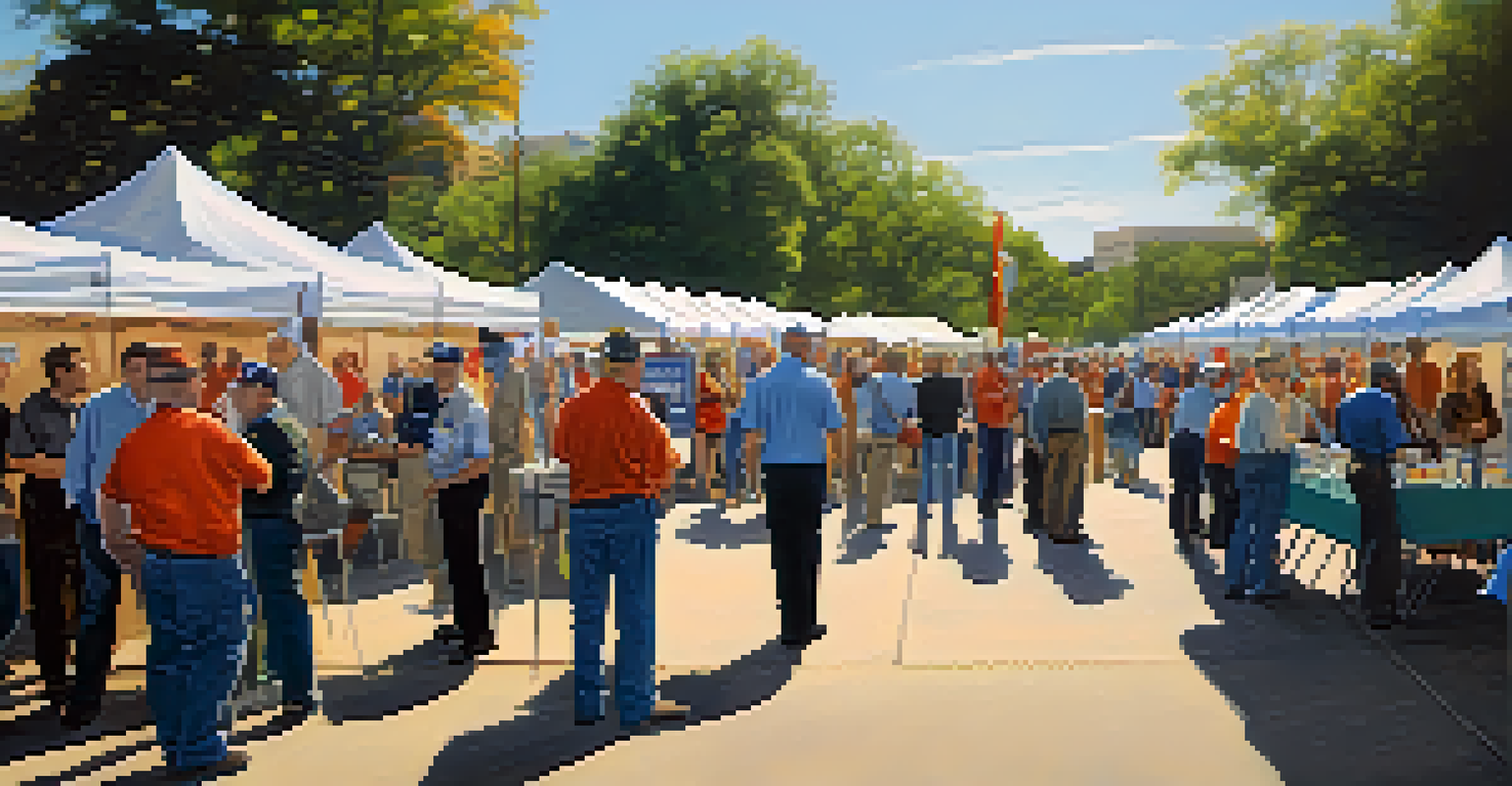Support for Veterans: Austin's Community Resources and Groups

Understanding the Needs of Veterans in Austin
Veterans often face unique challenges when transitioning to civilian life. In Austin, many veterans experience issues such as job placement, mental health struggles, and social reintegration. Understanding these needs is crucial for the community to provide effective support.
The greatest weapon against stress is our ability to choose one thought over another.
As Austin continues to grow, the influx of veterans has increased the demand for tailored resources. This demand has led to a rise in community programs focused specifically on addressing veterans' issues. By recognizing these challenges, Austin can foster an environment that promotes healing and growth.
The more we understand the hurdles veterans face, the better equipped we are to offer meaningful assistance. This awareness can lead to the development of stronger community connections and collaborative efforts among local organizations.
Local Organizations Providing Essential Services
Austin is home to numerous organizations dedicated to supporting veterans. Groups like the Texas Veterans Commission and the Austin Veterans Affairs Office provide a range of services, including benefits counseling and vocational training. These organizations play a vital role in helping veterans navigate their post-service lives.

Additionally, local nonprofits such as the Warriors for Freedom Foundation offer programs focused on mental health and wellness. They provide workshops and counseling that address the emotional challenges many veterans face. This holistic approach ensures that veterans receive the comprehensive support they need.
Veterans Need Tailored Community Support
Understanding the unique challenges veterans face in Austin is essential for developing effective community programs and resources.
By collaborating with these organizations, veterans can access resources tailored to their specific needs. This connection fosters a sense of community and belonging, which is essential for successful reintegration.
Mental Health Resources for Austin Veterans
Mental health is a critical aspect of veteran care, and Austin offers various resources to address these needs. The Central Texas Veterans Health Care System provides mental health services, including therapy and support groups. These resources are invaluable for veterans dealing with PTSD, depression, or anxiety.
Life is 10% what happens to us and 90% how we react to it.
Moreover, local initiatives like the Austin Vet Center focus on providing a safe space for veterans to share their experiences. By facilitating peer support and counseling, these centers help combat feelings of isolation and enable healing through community engagement.
In addition, online resources and hotlines extend support beyond physical locations. This accessibility ensures that veterans can seek help whenever they need it, making mental health resources more inclusive and available.
Employment Programs Tailored for Veterans
Finding suitable employment can be challenging for veterans transitioning to civilian life. Thankfully, Austin hosts several programs designed to help veterans secure meaningful jobs. Organizations like Hire Heroes USA provide career counseling and job placement services specifically for veterans.
Additionally, local businesses often partner with veteran-specific job fairs to connect with skilled candidates. These events not only help veterans find jobs but also educate employers about the unique strengths veterans bring to the workforce. It's a win-win situation that fosters mutual understanding.
Mental Health Resources are Vital
Access to mental health services, such as therapy and support groups, is crucial for veterans dealing with emotional challenges.
By participating in these programs, veterans can gain the skills and confidence needed to thrive in their new careers. This support is crucial in helping them rebuild their lives and contribute positively to the community.
Community Support Groups and Networks
Community support groups provide a vital lifeline for veterans in Austin. Organizations like the American Legion and Veterans of Foreign Wars (VFW) create spaces for veterans to connect and share their experiences. These groups often host events and meetings that foster camaraderie and encourage social interaction.
In addition to traditional support groups, there are also newer initiatives like the 'Veteran Meetup' groups, which focus on casual gatherings. These informal meetups can help veterans build friendships and support networks outside of structured programs. It’s a wonderful way to ease the transition into civilian life.
The power of community cannot be underestimated; having a network of peers who understand the challenges veterans face can significantly improve well-being. It reinforces the idea that no one has to navigate their journey alone.
Housing Assistance for Veterans in Austin
Access to stable housing is crucial for veterans adjusting to civilian life. In Austin, several organizations provide housing assistance specifically for veterans. The Housing Authority of the City of Austin, for instance, offers programs such as the HUD-VASH program, which combines housing vouchers with supportive services.
In addition to government programs, local nonprofits like the Veterans Community Project focus on providing transitional housing for veterans experiencing homelessness. These organizations often provide not just a roof over their heads but also essential resources to help veterans regain stability.
Employment Programs Aid Transition
Austin offers various employment programs that help veterans secure meaningful jobs and successfully reintegrate into civilian life.
By ensuring veterans have a safe place to live, Austin's community can significantly impact their overall quality of life. Housing stability lays the foundation for other aspects of reintegration, such as employment and mental health.
Educational Opportunities for Veterans
Education can be a powerful tool for veterans looking to enhance their skills or pursue new careers. Austin offers various educational programs tailored specifically for veterans, including those at local colleges and universities. Institutions often provide support services like tutoring and counseling to help veterans succeed academically.
The GI Bill is a significant resource that many veterans can take advantage of, covering tuition and fees for higher education. Local colleges also host workshops and information sessions to guide veterans through the application process, ensuring they maximize their benefits.

By pursuing education, veterans not only gain valuable skills but also build confidence and a sense of purpose. This investment in their future can lead to fulfilling careers and enhanced community engagement.
Advocacy and Policy Support for Veterans
Advocacy plays a crucial role in ensuring that veterans' voices are heard and their needs are met. In Austin, various organizations work tirelessly to influence policies that directly affect veterans' lives. Groups like the Texas Veterans Commission advocate for better access to resources and support for veterans statewide.
Community engagement is essential for successful advocacy, and many organizations encourage veterans to participate in local government meetings. This involvement empowers veterans to share their experiences and contribute to shaping policies that affect their lives.
By working together, veterans and advocates can create a stronger community that prioritizes their well-being. Advocacy not only raises awareness of veterans' issues but also fosters a culture of respect and support.